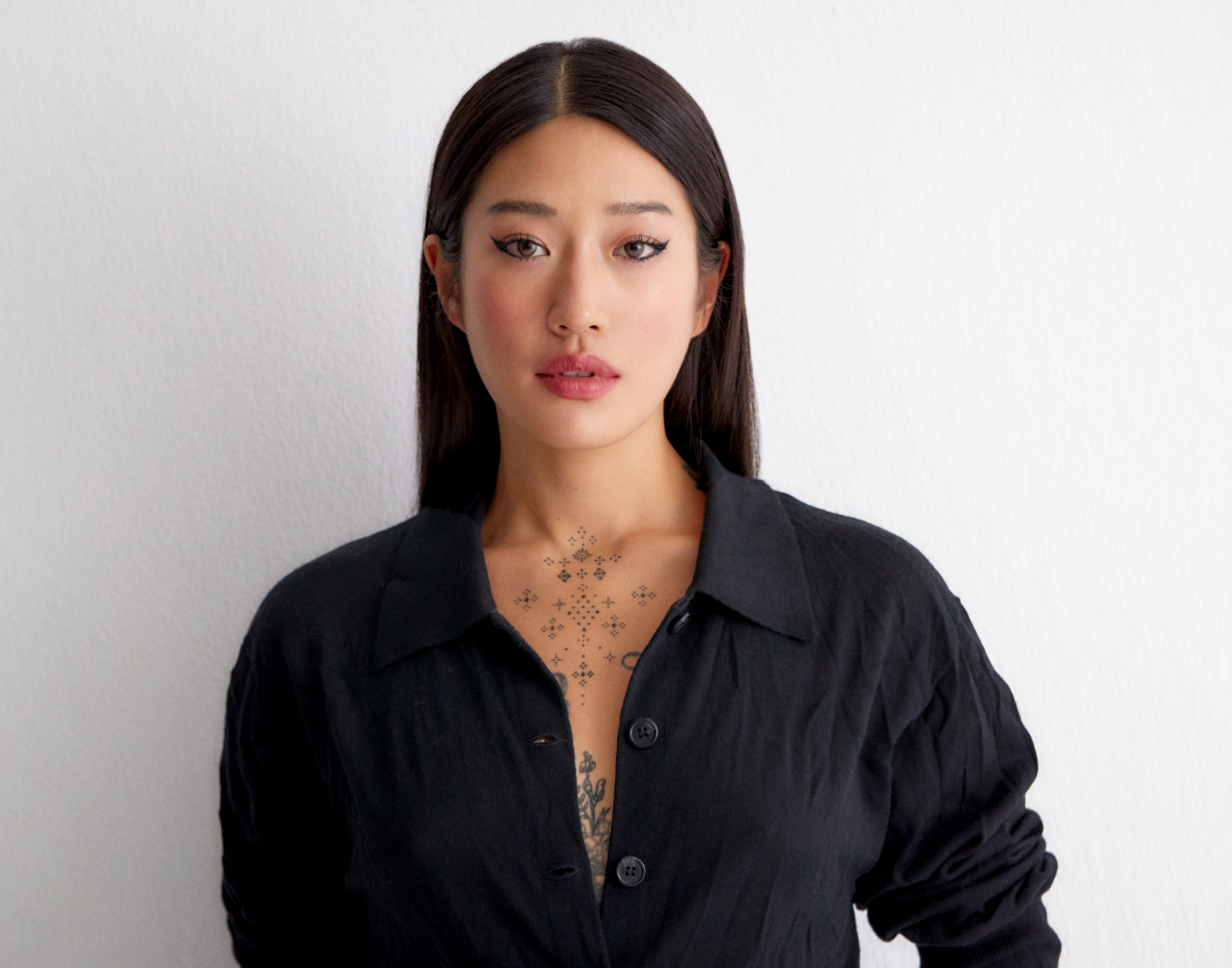 |
Peggy Gou |
Peggy Gou is a superstar DJ doing tours around the world year-round. Her shows are always sold out across mostly European cities. Gou’s latest single “(It goes like) Nanana” has been on the UK top 10 singles chart for 10 straight weeks, and topped the charts in the Netherlands and Belgium over the summer.
Although she may not be as widely known as BTS in her home country, Gou is a proud South Korean, born and bred in Incheon.
“When people see other Asian performers and ask me if I know him or whether he’s Korean, I tell them, all Asians -- Japanese, Chinese or Korean -- are like sisters and brothers to me,” Gou said in a phone interview with The Korea Herald.
Growing up, Gou loved Korean singers like Uhm Jung-hwa and Lee Jung-hyun. She also loved old Korean folk singers like Song Chang-sik whose songs her parents enjoyed singing and playing the guitar to.
“It is my goal and dream to make timeless music like some of the older-generation Korean musicians,” she said, adding that as a producer, she often looks up great songs from the past for inspiration.
Her 2019 hit single “Starry Night,” which was released alongside her first music video, was a huge success, so she felt a lot of pressure for her subsequent songs.
She plans to release her first album next year, and “(It goes like) Nanana,” which came out in June this year, is one of the songs that will be in the upcoming album.
“I worked on (‘Nanana’) for three years, and I felt good about it, but I never imagined it would be this popular,” she said.
Her 2018 hit track "It Makes You Forget (Itgehane)" had Korean lyrics, which countless non-Koreans sang to, as shown in thousands of YouTube videos.
 |
Peggy Gou performs live (from Gou's Instagram) |
While she cherishes her Korean identity, it was in Europe where she spent most of her teenage and adult years, that she found her passion in music and worked to build her career.
Her parents sent her to London at age 14 as they thought Gou -- a rebel with “eighth grader disease,” a common expression used in Korea to refer to teenagers in eighth grade acting up -- "had no future in Korea.”
In London, she partied and continued to dislike being told what to do or how to behave.
After she went to the London College of Fashion, she went clubbing every weekend, learned the basics of beatmatching from a friend, and got to meet with promoters and others in the music industry.
She had gone to fashion school because she thought she wanted to be a designer, and then a stylist. But she soon realized she was not good at styling other people, although she loved styling herself. Her growing fascination with music made her go to school less, and she failed her fashion course.
“My mom said she wouldn't pay for my flight back home if I didn't pass the course, so I eventually passed it. I later told my mom that even though it’s not the path I’m going to pursue, it felt good to pass,” she said.
Gou then went to Berlin, the capital of European techno music, to educate herself as a musician.
Working at a record store during the day and spending many of her nights at a famous club called Berghain, she met several artists and took her first steps as a professional musician.
 |
Peggy Gou performs live (from Gou's Instagram) |
Although Gou performs in front of up to 20,000 people at arenas or music festivals in Europe and North America, she’s not sure if many people know her in Korea.
“The way I think and act is more European than Korean, I think. Koreans seem to care a lot about how others might see them and keep comparing other people's lives with theirs, but I don’t,” she said.
“My parents say 'no Korean man can handle you, so find your husband outside of the country.'”
She did a show in Seoul in March and plans to hold more.
Being a fashion icon, Gou has over 3.7 million Instagram followers who are mesmerized and inspired by her music, style and personality.
She tries to visit her family in Korea as often as possible, but usually can only stay for two or three days in between tours.
In 2019, Gou was named by Forbes as one of the 30 most influential Asian leaders, pioneers and entrepreneurs under age 30. She has her own fashion label KIRIN, which means "giraffe" in Korean, and her own independent record label, Gudu Records.







![[Today’s K-pop] Blackpink’s Jennie, Lisa invited to Coachella as solo acts](http://res.heraldm.com/phpwas/restmb_idxmake.php?idx=644&simg=/content/image/2024/11/21/20241121050099_0.jpg)